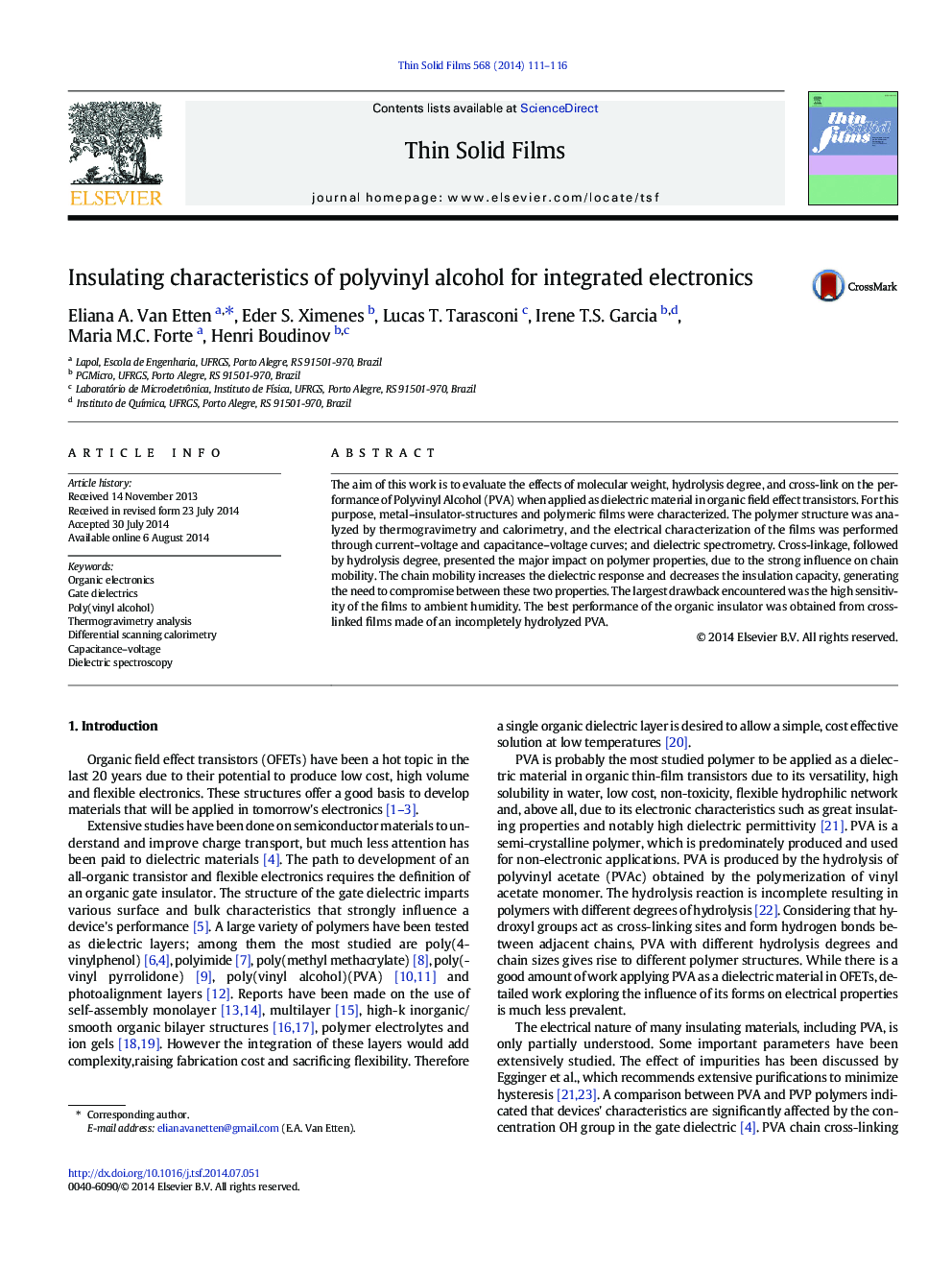| Article ID | Journal | Published Year | Pages | File Type |
|---|---|---|---|---|
| 1665354 | Thin Solid Films | 2014 | 6 Pages |
•Effect of molecular weight, hydrolysis and cross-link on polyvinyl alcohol (PVA) dielectric•Cross-linkage, followed by hydrolysis, showed the major impact on properties.•Cross-linkage followed by hydrolysis showed the strongest effect on chain mobility.•Best dielectric performance: cross-linked films made of incompletely hydrolyzed PVA•Largest drawback is the high sensitivity of the films to ambient humidity.
The aim of this work is to evaluate the effects of molecular weight, hydrolysis degree, and cross-link on the performance of Polyvinyl Alcohol (PVA) when applied as dielectric material in organic field effect transistors. For this purpose, metal–insulator-structures and polymeric films were characterized. The polymer structure was analyzed by thermogravimetry and calorimetry, and the electrical characterization of the films was performed through current–voltage and capacitance–voltage curves; and dielectric spectrometry. Cross-linkage, followed by hydrolysis degree, presented the major impact on polymer properties, due to the strong influence on chain mobility. The chain mobility increases the dielectric response and decreases the insulation capacity, generating the need to compromise between these two properties. The largest drawback encountered was the high sensitivity of the films to ambient humidity. The best performance of the organic insulator was obtained from cross-linked films made of an incompletely hydrolyzed PVA.
